Where Can the Magnificent Seven Stocks Go in 2024?
The Magnificent Seven have been driving stock returns. Here, we take a close look at the mega-cap hotshots to see what's next.


Profit and prosper with the best of Kiplinger's advice on investing, taxes, retirement, personal finance and much more. Delivered daily. Enter your email in the box and click Sign Me Up.
You are now subscribed
Your newsletter sign-up was successful
Want to add more newsletters?

Delivered daily
Kiplinger Today
Profit and prosper with the best of Kiplinger's advice on investing, taxes, retirement, personal finance and much more delivered daily. Smart money moves start here.

Sent five days a week
Kiplinger A Step Ahead
Get practical help to make better financial decisions in your everyday life, from spending to savings on top deals.

Delivered daily
Kiplinger Closing Bell
Get today's biggest financial and investing headlines delivered to your inbox every day the U.S. stock market is open.

Sent twice a week
Kiplinger Adviser Intel
Financial pros across the country share best practices and fresh tactics to preserve and grow your wealth.

Delivered weekly
Kiplinger Tax Tips
Trim your federal and state tax bills with practical tax-planning and tax-cutting strategies.

Sent twice a week
Kiplinger Retirement Tips
Your twice-a-week guide to planning and enjoying a financially secure and richly rewarding retirement

Sent bimonthly.
Kiplinger Adviser Angle
Insights for advisers, wealth managers and other financial professionals.

Sent twice a week
Kiplinger Investing Weekly
Your twice-a-week roundup of promising stocks, funds, companies and industries you should consider, ones you should avoid, and why.

Sent weekly for six weeks
Kiplinger Invest for Retirement
Your step-by-step six-part series on how to invest for retirement, from devising a successful strategy to exactly which investments to choose.
In the film The Magnificent Seven, seven gunslingers help a band of simple townsfolk overcome an army of baddies (worth watching if you haven't already – either version). But that's not the group that concerns us here. Instead, it's the stocks of mega-size companies – Alphabet (GOOGL), Amazon.com (AMZN), Apple (AAPL), Meta Platforms (META), Microsoft (MSFT), Nvidia (NVDA) and Tesla (TSLA) – that have soared in price over the past year, propelling the broad market to double-digit returns. These seven aren't battling villains, but they have armed investor portfolios with lots of extra dollars.
Since the start of 2023, the Magnificent Seven stocks, or the Magnificent 7 stocks as it's sometimes written, which top the S&P 500 index, have gained a cumulative average of 107%. The benchmark, by comparison, is up 26% over the same period. "Triple-digit returns are not unusual in the land of risky small-cap companies," says Scott Opsal, director of research and equities at Leuthold Group, "but for the very top of the S&P 500 market-cap ranking to gain 100% is another thing altogether."
Will the momentum continue in 2024? That's the trillion-dollar question. The shares of Apple and Amazon have recently trailed the broad market; Tesla stock has dropped 30% in price over the past six months (it's now the eighth-largest company in the S&P 500, behind Berkshire Hathaway). Regulatory scrutiny and risk abound with many of the Seven, and there's no getting around the fact that they are richly priced.
From just $107.88 $24.99 for Kiplinger Personal Finance
Become a smarter, better informed investor. Subscribe from just $107.88 $24.99, plus get up to 4 Special Issues

Sign up for Kiplinger’s Free Newsletters
Profit and prosper with the best of expert advice on investing, taxes, retirement, personal finance and more - straight to your e-mail.
Profit and prosper with the best of expert advice - straight to your e-mail.
Nevertheless, the Magnificent Seven are magnificent for a reason. They dominate their industries, make products that are in high demand, boast strong balance sheets, and generate piles of cash. And each firm is a key player in its own way in generative artificial intelligence, a new technology paradigm that experts say will power future revenues and earnings growth across multiple industries for years to come.
In this story, we'll take a closer look at the growth prospects and potential risks for the Magnificent Seven, collectively and individually, to help you decide how they might fit in your portfolio – or not.
The power of AI
There are many modes of generative AI, but generally speaking, it's the ability of sophisticated computers to process mounds of data, images, and even written and spoken language and then use that information to create original text, images, computer code or other content. The market potential, say many analysts, is huge. AI will improve economic productivity as it speeds up innovation and as it helps workers become more efficient, a May 2023 Brookings Institution report said.
What's more, the implementation and economic impact of AI may occur faster than innovations in the past because AI is software-based and can be rolled out quickly on the internet. "The world is changing at an increasing pace thanks to AI," says Terry Sandven, chief equity strategist at U.S. Bank Wealth Management. "It has never been faster."
ChatGPT, developed by Microsoft partner OpenAI, hit 100 million users within two months of its launch, the fastest-growing user base of any app on record, according to multiple reports. Instagram took two years to hit that mark.
All of the Magnificent Seven companies boast traits that give them a powerful edge in generative AI. Data fuels AI, and these companies have that in abundance, says Dom Rizzo, manager of T. Rowe Price Global Technology fund, thanks to the loyal mass of consumers each company counts as customers.
Microsoft dominates computing; Amazon, e-commerce; Alphabet, web searches – you get the idea. What's more, each company has a strong vision for the future and the cash and talent to make it happen, or at least give it a good try.
Does price matter if they're magnificent? After doubling in price, on average, the Mag Seven trade at an average 34 times expected earnings for the year ahead. That exceeds the price-to-earnings (P/E) ratio of the S&P 500, which trades at 20 times expected earnings. The lofty P/E has some strategists saying the group has run out of steam. Other strategists are comparing the rise in these elite shares to the sky-high dot-com stocks of the 1990s and the Nifty Fifty of the 1960s.
But earnings growth may justify some of the pricier valuations of these leaders. Analysts expect the group to average a 29% growth rate in profits over the year ahead, according to Zacks Investment Research – more than double the 14% earnings-growth forecast for the S&P 500.
"Mag Seven valuations are rich, but not stretched," says Martin Romo, Capital Group's chairman and chief investment officer. "I'm not saying they're all buys, but you can't ignore them."
There's likely room for more gains in each of the stocks, especially over the long term. "We're still in the early innings of AI, and these companies are well positioned going forward," says U.S. Bank's Sandven.
Just don't expect the average share price for the Magnificent Seven to double again this year. "Nothing is impossible, but the chance that the same group has runaway performance in 2023 is pretty slim," says Liz Young, SoFi's head of investment strategy.
A reality check on the Mag 7
Chances are you already own some or all of the Mag Seven, either as individual stocks or in a fund. Even if you don't, they're worth watching. Together they make up 28% of the S&P 500's market capitalization, and that packs a punch.
The group is "single-handedly driving earnings growth for the broad market right now," says Jeff Buchbinder, chief equity strategist of LPL Financial.
Whatever your strategy is with these high-flying stocks, be prepared for a lot of choppiness along the way. Sandven advises investors to consider balancing investments in this singular group with exposure to sectors that underperformed in 2023, such as utilities, real estate investment trusts (REITs), healthcare and financials. View any dips in a Magnificent Seven's share price – around 10%, say – as a good potential entry point.
And be patient. Even a fast-moving, transformative theme like AI can take two to five years to play out, says SoFi's Young. Today's key players could be minor ones tomorrow, for instance. It's not unusual for "the company that no one expected to be the darling of a theme to land on top," she adds.
Read on for more on each of the Magnificent Seven stocks. (All returns are through January 31, unless otherwise noted.)
Alphabet
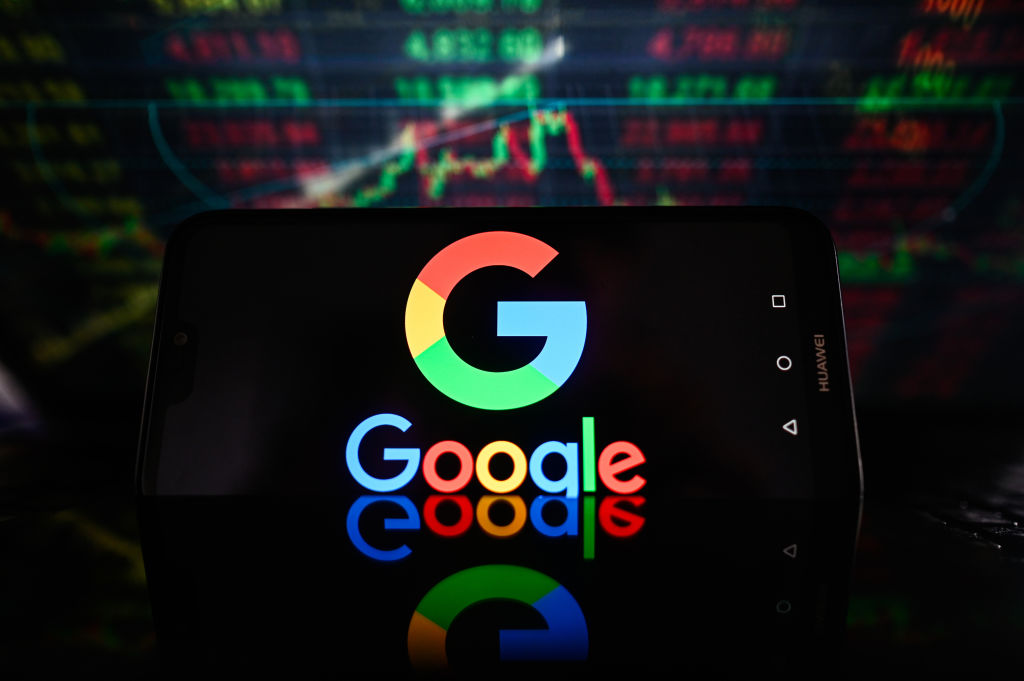
There's no Alphabet without Google. The search engine, which accounts for 55% to 60% of the company's total revenue, handles 90% of all internet queries worldwide. But growth in ad revenue is slowing, at least according to the firm's recent quarterly results. For now, that has overshadowed strong growth in Alphabet's other businesses, including Google Cloud and YouTube – each of which account for about 10% to 12% of revenue.
Meanwhile, the company has been investing heavily in AI – almost $150 billion in just five years – to improve the experience for users and customers when they interact with its products. Google Translate, for instance, now works for 133 languages. Google's multisearch allows people to search with images and text at the same time – in 70 languages. Google Lens allows you to take a photo of a tomato plant in front of you and add "care instructions" to learn how best to nurture it. Even Google Maps uses AI in various ways, including to map remote and rural areas.
Any upside to the company's Cloud computing business and its AI initiatives would be a positive for Alphabet shareholders. But growth in Google Cloud slowed in the most recent quarter compared with a year earlier, catching some analysts by surprise. And turning AI-driven products, like a chatbot (a computer program that simulates human conversation, answers queries and performs some routine tasks, like ChatGPT), into money-making machines could be a challenge. The other problem: A more AI-enabled world could squelch some of Alphabet's search business, as people start to find other ways to gather information.
Finally, regulatory risks loom, too, and with them, rising legal costs. The U.S. Department of Justice, various states and other plaintiffs have filed several antitrust lawsuits against Alphabet that target various aspects of its business, including its search engine. Alphabet recognized $600 million in legal fees in the recent quarter, notes Mizuho Securities USA analyst James Lee.
All of the uncertainty, however, means Alphabet stock is downright cheap compared with some of its magnificent peers. At $140 – about $5 below its 2022 peak – it trades at 21 times expected earnings. Jefferies analyst Brent Thill rates the stock a Buy, with a 12-month price target of $175. Shares can "grind higher" despite a 58% gain in 2023, he says, thanks in part to accelerating growth in Cloud sales and strength in search. The upcoming naming of a new chief financial officer could be a catalyst, too.
Amazon.com
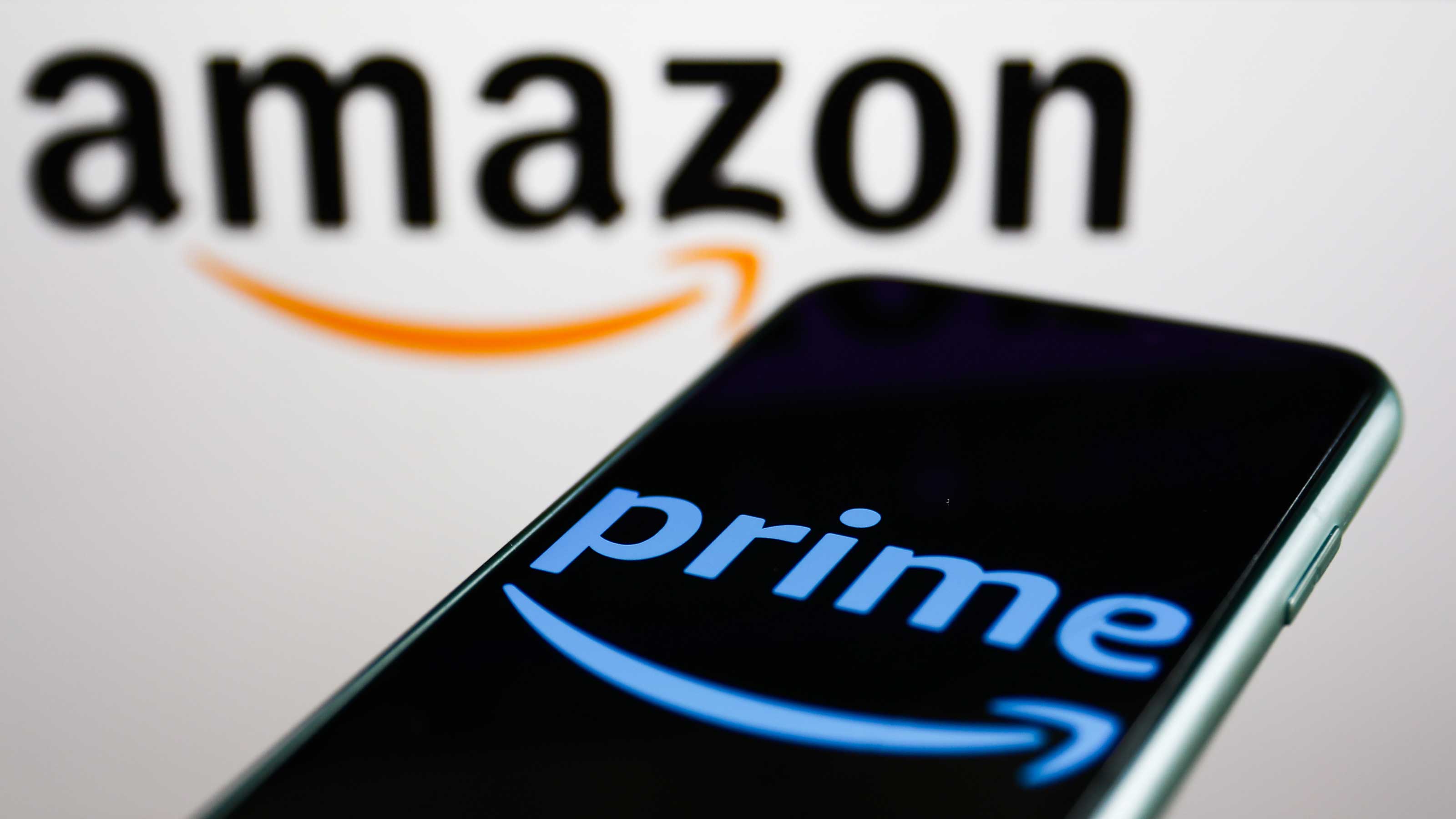
The Magnificent Seven stocks haven't always been on top. They took such a beating in 2022 that some of them are still recovering to their pre-2022 peak levels, despite monster gains in 2023. Amazon.com is one of them (Alphabet and Tesla are the others). Though Amazon shares have climbed 76% cumulatively since the start of 2023, they still trade 9% below their previous peak in 2022.
Does that make stock in this e-commerce/cloud services giant a good deal today? Yes, relative to its historical trading range. Shares trade at a P/E of 43 – well below average and close to their low over the past 10 years. Meanwhile, earnings growth is robust. Analysts project the company will post a 35% jump in 2024 earnings compared with 2023, and nearly 30% in 2025.
But there are reasons to feel cautious, too. Although the company has, at long last, turned into a highly profitable, cash-generating machine, near-term drivers of growth are, well, meh.
The company is digging into some new business areas – healthcare, for instance – but its short-term fortunes hinge on how much consumers are spending online, accelerated growth of its Amazon Web Services cloud computing business, or on cost-saving initiatives. And Amazon faces regulatory issues of its own, including a number of Federal Trade Commission lawsuits. One filed in September alleges that Amazon employed unfair, anticompetitive strategies to stifle competition.
Apple
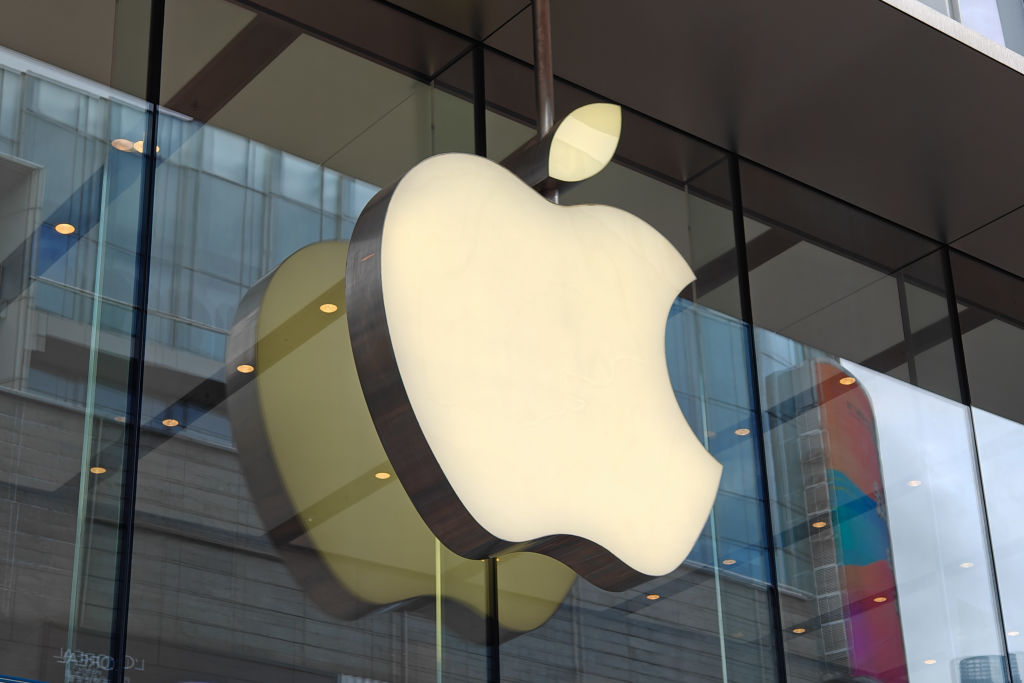
For years, Apple set the pace, launching new technology and devices that quickly became must-have tools. But that innovation appears to have hit a holding pattern for now, and customers are waiting longer to upgrade their devices to the latest iteration.
A few Wall Street analysts, including Tim Long, of Barclays, are cool on the stock. Long reduced his price target to $158 in early January, which is below the stock's recent price of $184, citing lackluster sales for the iPhone 15 and soft expected demand for the iPhone 16, which will launch later this year. Expectations for slowing growth in Apple's services business segment – including subscription fees for Apple TV+, Apple Music and iCloud – was another negative.
But Apple's ecosystem, which encompasses 2.2 billion actively used devices the world over, is nothing to sniff at. And some analysts say the company's AI potential is consistently underestimated. Siri, for instance, has big potential. "She can book your Uber, order your dinner and make a hotel reservation after you buy an airline ticket," says T. Rowe Price's Rizzo. "That's a powerful world for Apple, and it potentially leads to a hardware upgrade cycle," in which customers will clamor for the latest iPhone in order to make full use of AI-enabled services.
For the quarter that ended in December, Apple reported record earnings per share, despite disappointing sales in China. The report dimmed analysts' expectations for the upcoming quarter, but average annual earnings growth over the next three years is expected to be a healthy 13%. And Apple throws off more cash than any other Mag Seven peer – $99 billion at last report.
The stock trades at a more reasonable P/E – 28 – than do some of the other six stocks. And Apple has been one of the less volatile, too. Morgan Stanley's Erik Woodring, who rates the stock Overweight, or the equivalent of Buy, says he would be a buyer on any weakness in share prices.
Meta Platforms

Meta is known for its social-networking apps – Facebook, Instagram, WhatsApp and Messenger. But the firm's true assets are its 3.14 billion daily users. Their clicks in Meta's apps are gold for generative AI.
Generative AI is already working behind the scenes. AI algorithms make predictions on what kinds of posts and ads you might want to see on Instagram Reels, based on what you're watching, clicking on and liking. Users can turn selfies into watercolor portraits with an AI-powered image-editing tool or consult Meta AI, the chatbot personal assistant, to plan their next meal out. But the firm is working to find other ways generative AI can improve app experiences in search, ads, messaging and more.
Shares soared more than 160% over the past 12 months ending January 31. Days later, shares leaped anew after Meta announced solid quarterly results and its first-ever quarterly dividend of 50 cents per share. Despite the strong share gains, on a P/E basis, the shares are still among the cheapest of the Magnificent Seven. Analysts on average see earnings growth approaching 30% year-over-year in 2024.
Meta went on a spending "diet" last year, laying off 13% of its workforce and cutting $3 billion in operating costs, says market strategist Ed Yardeni, of Yardeni Research. That, and a rebound in digital ad spending, helped boost earnings. Advertising accounts for 95% of the company's revenue.
That said, the firm's key risk is a decline in digital ad spending. Many analysts, including Robert W. Baird's Colin Sebastian, expect a pickup in ad spending this year, with the largest portion of advertisers planning to increase budgets on social media, followed by video and search. But some, including Wells Fargo Securities' Ken Gawrelski, predict a spending slowdown in 2024. And regulatory scrutiny is a worry; Meta faces a litany of legal issues in the U.S. and Europe.
Microsoft
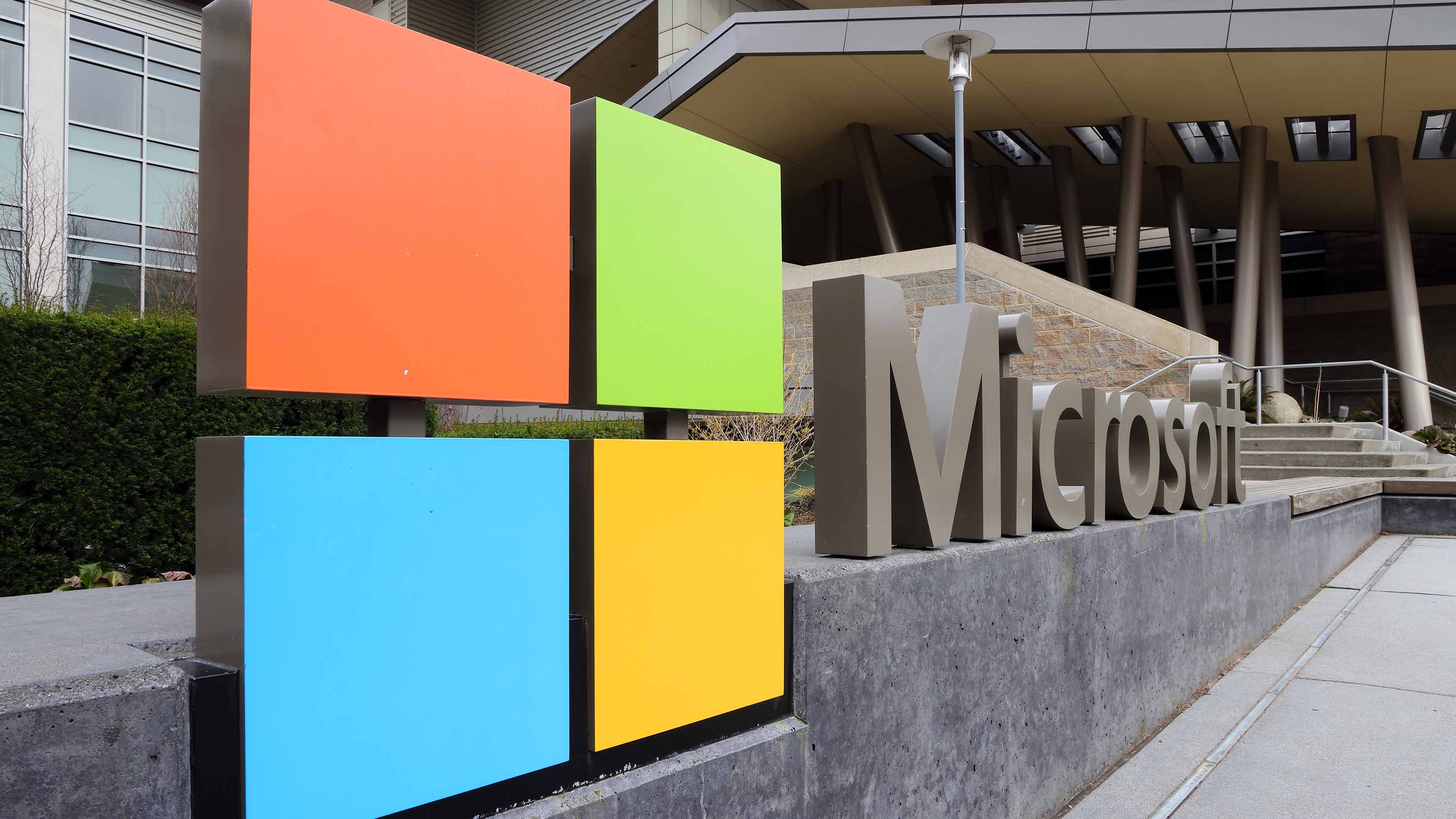
It may be the oldest of the Magnificent Seven, at nearly 50, but Microsoft is more consequential than ever. At $2.9 trillion in market value, it's the biggest company in the world – yet it still raked in a record $22 billion in sales in its last fiscal year, which ended in June. More than a billion people around the world use Office, its collection of desktop apps.
More important, Microsoft has nimbly adapted to multiple tech paradigm shifts over the years, from the PC to the internet, the cloud, and now AI. Indeed, 32 out of 43 stock analysts who cover the Dow Jones stock rate the shares a Strong Buy in part because the company has its fingers in so many AI pots. Copilot, the company's chatbot, is embedded in all of the company's popular products – for an extra monthly fee, of course.
Microsoft's AI prowess is helping companies and organizations in practical ways. Taiwan's Ministry of Education has built an online platform to help elementary and high school students learn English using Microsoft's cloud-based AI platform, Azure AI. Developers at the Argentinian financial technology company Mercado Libre (MELI) have shaved 50% off the time they spend writing code by using Microsoft's GitHub Copilot. And Mercedes-Benz (MBGAF) is making its in-car voice assistant more intuitive for drivers by using ChatGPT.
Truist Securities analyst Joel Fishbein sees 2024 as a "pivotal year in the market for generative AI spending" and says Microsoft is the leading generative-AI-enabling provider. Fishbein expects roughly 14% growth in Microsoft's revenues and 15% to 16% growth in earnings over the next three years. At a recent price of $398, shares trade at 36 times expected earnings. That's rich, but not extreme compared with its historical median P/E of 31 over the past five years, according to Zacks Investment Research. Even so, the stock's valuation leaves little room for missteps.
Nvidia
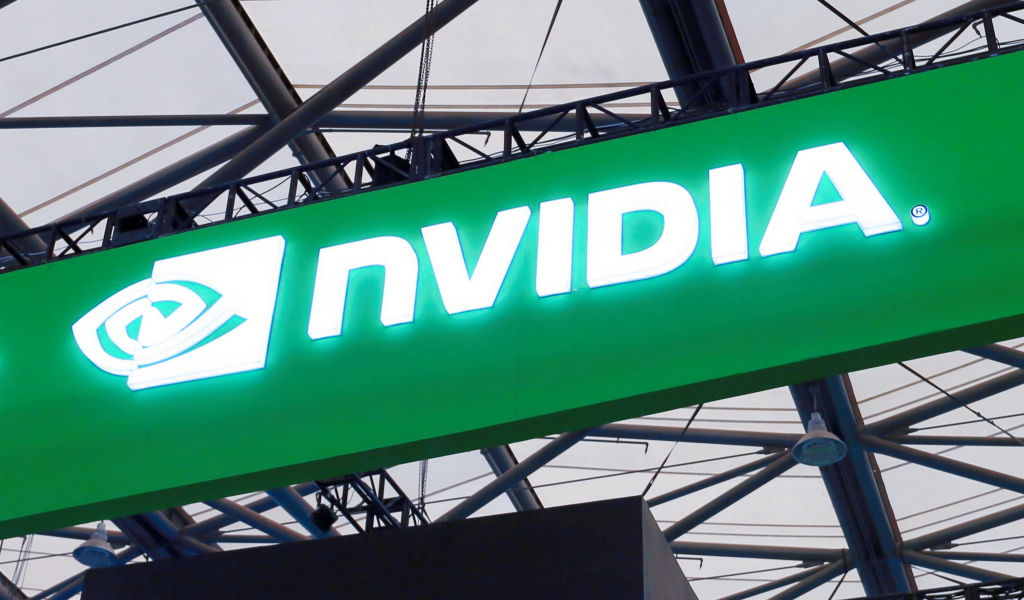
Nvidia's semiconductor chips are in high demand these days because they can crunch massive amounts of data, the fuel for artificial intelligence programs. Sales are set to double in 2024, year-over-year. And analysts expect earnings per share to jump fourfold from the previous year – to $12 in 2024 – and to $20 in 2025. "I don't think we've ever seen earnings growth of this size, scale and scope before," says T. Rowe Price's Rizzo. "It's crazy."
It's the reason the stock has climbed 277% cumulatively since the start of 2023. Shares currently trade at a P/E of 30 based on a consensus of analysts' earnings forecasts for its next fiscal year, which ends in January 2025.
Smart investors will look for dips in price to buy, then buckle up for the ride. Nvidia shares have been twice as volatile as the broad market and the Nasdaq Composite index over the past three years. Of course, that volatility measure – standard deviation – is as much about the stock's big moves up as it is about the stock's downward shifts.
Nvidia faces some near-term risks, however. The company's original bread-and-butter business, gaming chips, is slowing. There's a chance that AI-chip demand could slow, too. And competition from other AI chipmakers, such as Advanced Micro Devices (AMD) and Broadcom (AVGO), is ramping up. Plus, the U.S. is limiting the types of chips that companies can sell to China, which may pose problems for Nvidia, as China sales account for 20% to 25% of overall revenues.
Tesla
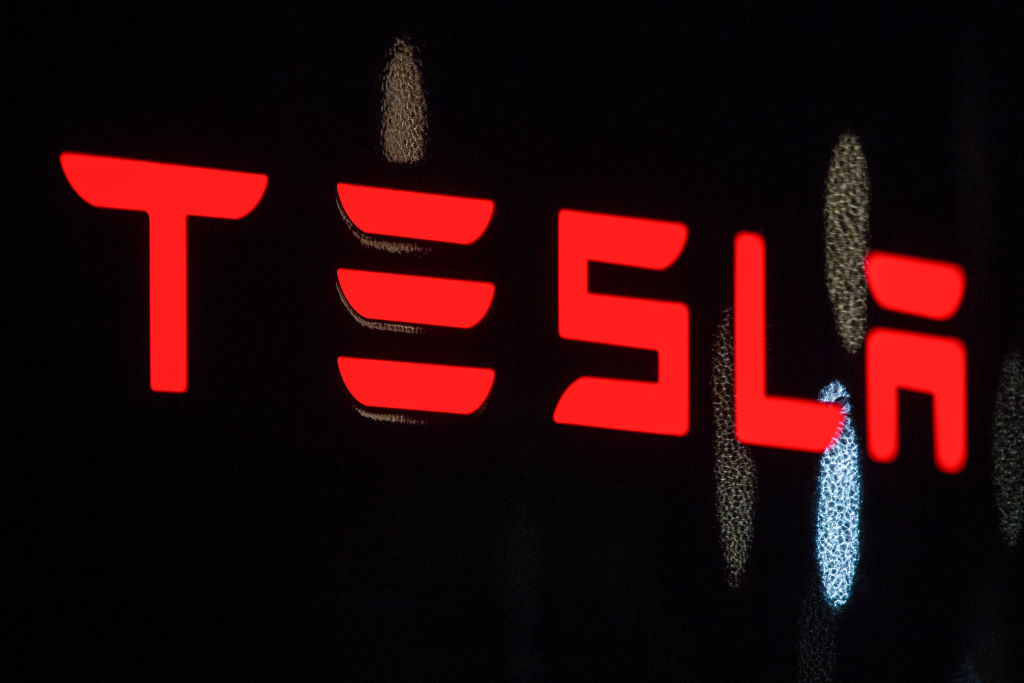
Shares in this automaker – the biggest electric-vehicle manufacturer in the U.S. (but not the world) – have declined 30% over the past six months, which has us wondering whether its days as a member of the magnificent club are dwindling.
The automaker missed analysts' expectations for revenues and earnings in each of the past two quarters – a big no-no for fast-growing stocks. Tesla cut prices on some of its electric vehicles last year in an effort to drive up sales, and that pinched operating profit margins. And there have been a spate of recalls.
But the pace of auto sales, accounting for 95% of Tesla's business, is the biggest problem—not just at the company, but worldwide. In 2023, the firm's auto revenues rose 15%, far short of the 50% pace logged in 2021 and 2022. EV demand is "stalling" globally, says Wedbush Securities analyst Daniel Ives, and a glut of EV parts is hitting the market. Though Ives believes most of Tesla's price cuts are done, the company may feel pressure this year to cut prices further. If so, Tesla shares may find it hard to "shed this black cloud in the near term," he says. Even so, the stock still trades at a P/E of 57, a nosebleed level relative to analysts' expectations for earnings growth.
Tesla has other long-term bets that could propel growth in the future, including energy generation and storage. And it has the AI edge in self-driving cars, thanks to the data compiled by its own EVs. But even analysts who are bullish on Tesla admit that 2024 will be challenging. We wouldn't unload shares, but you might wait for more dips if you're thinking about buying.
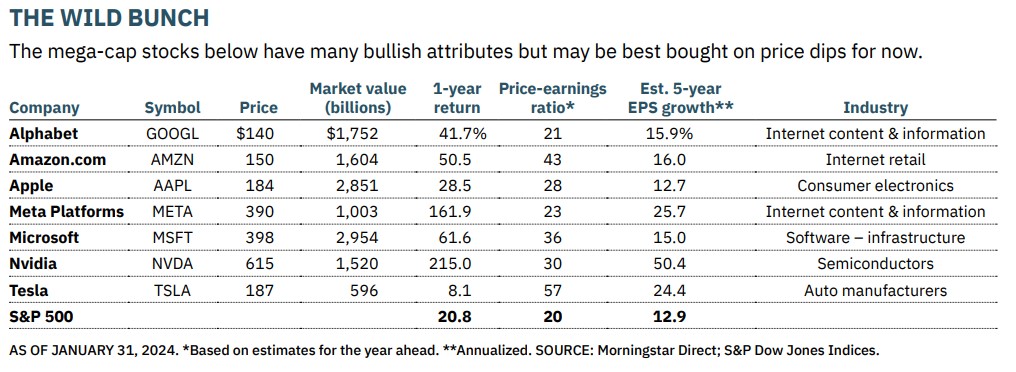
Note: This item first appeared in Kiplinger's Personal Finance Magazine, a monthly, trustworthy source of advice and guidance. Subscribe to help you make more money and keep more of the money you make here.
Related content
- Stock Picks That Billionaires Love
- How to Find the Best Growth Stocks
- Analysts' Top S&P 500 Stocks to Buy Now
Profit and prosper with the best of Kiplinger's advice on investing, taxes, retirement, personal finance and much more. Delivered daily. Enter your email in the box and click Sign Me Up.

Nellie joined Kiplinger in August 2011 after a seven-year stint in Hong Kong. There, she worked for the Wall Street Journal Asia, where as lifestyle editor, she launched and edited Scene Asia, an online guide to food, wine, entertainment and the arts in Asia. Prior to that, she was an editor at Weekend Journal, the Friday lifestyle section of the Wall Street Journal Asia. Kiplinger isn't Nellie's first foray into personal finance: She has also worked at SmartMoney (rising from fact-checker to senior writer), and she was a senior editor at Money.
-
 Dow Leads in Mixed Session on Amgen Earnings: Stock Market Today
Dow Leads in Mixed Session on Amgen Earnings: Stock Market TodayThe rest of Wall Street struggled as Advanced Micro Devices earnings caused a chip-stock sell-off.
-
 How to Watch the 2026 Winter Olympics Without Overpaying
How to Watch the 2026 Winter Olympics Without OverpayingHere’s how to stream the 2026 Winter Olympics live, including low-cost viewing options, Peacock access and ways to catch your favorite athletes and events from anywhere.
-
 Here’s How to Stream the Super Bowl for Less
Here’s How to Stream the Super Bowl for LessWe'll show you the least expensive ways to stream football's biggest event.
-
 Dow Leads in Mixed Session on Amgen Earnings: Stock Market Today
Dow Leads in Mixed Session on Amgen Earnings: Stock Market TodayThe rest of Wall Street struggled as Advanced Micro Devices earnings caused a chip-stock sell-off.
-
 How to Add a Pet Trust to Your Estate Plan: Don't Leave Your Best Friend to Chance
How to Add a Pet Trust to Your Estate Plan: Don't Leave Your Best Friend to ChanceAdding a pet trust to your estate plan can ensure your pets are properly looked after when you're no longer able to care for them. This is how to go about it.
-
 Want to Avoid Leaving Chaos in Your Wake? Don't Leave Behind an Outdated Estate Plan
Want to Avoid Leaving Chaos in Your Wake? Don't Leave Behind an Outdated Estate PlanAn outdated or incomplete estate plan could cause confusion for those handling your affairs at a difficult time. This guide highlights what to update and when.
-
 I'm a Financial Adviser: This Is Why I Became an Advocate for Fee-Only Financial Advice
I'm a Financial Adviser: This Is Why I Became an Advocate for Fee-Only Financial AdviceCan financial advisers who earn commissions on product sales give clients the best advice? For one professional, changing track was the clear choice.
-
 Nasdaq Slides 1.4% on Big Tech Questions: Stock Market Today
Nasdaq Slides 1.4% on Big Tech Questions: Stock Market TodayPalantir Technologies proves at least one publicly traded company can spend a lot of money on AI and make a lot of money on AI.
-
 I Met With 100-Plus Advisers to Develop This Road Map for Adopting AI
I Met With 100-Plus Advisers to Develop This Road Map for Adopting AIFor financial advisers eager to embrace AI but unsure where to start, this road map will help you integrate the right tools and safeguards into your work.
-
 The Referral Revolution: How to Grow Your Business With Trust
The Referral Revolution: How to Grow Your Business With TrustYou can attract ideal clients by focusing on value and leveraging your current relationships to create a referral-based practice.
-
 This Is How You Can Land a Job You'll Love
This Is How You Can Land a Job You'll Love"Work How You Are Wired" leads job seekers on a journey of self-discovery that could help them snag the job of their dreams.